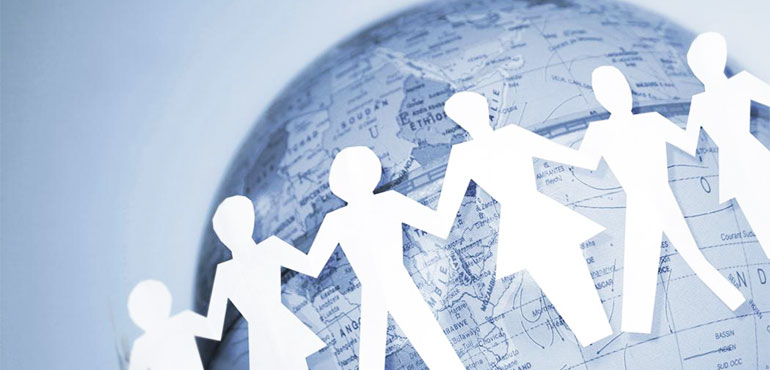
In October 2022, MRU Sociological Research LAB Head and Human and Social Studies Faculty‘s Institute of Educational Sciences and Social Work Assoc. Prof. Vida Česnuitytė, Prof. Brigita Kairienė and Research and Innovation Centre Research Quality and Analysis Office Head Agata Katkonienė joined the new COST Activity CA21143, “Transnational Family Dynamics in Europe" (TraFaDy). Children‘s Rights Protection Master‘s Degree student Evelina Žygaitė also participated.
Brussels-based Odisee University of Applied Sciences heads the Cost Activity CA21143, which is implemented from October 3rd, 2022 and is expected to end by Oct. 2nd, 2026. Its goal is to expand and deepen knowledge of understanding the transnational family by having researchers from different areas and various countries address the need and help form policy with impact on internatinal and local practices. The transnational family is one whose members continuously or temporarily live on both sides of a country‘s border. By no means is this a new phenomenon, however the topic has only recently – in the last decades, caught the attention of researchers. Up to now research shows these families as an important societal actor in transit, sending and receiving countries, migration policies and societies in general. Transnational families have been found to experience social, economic and political effects of globalization. However, there is still no fundamental concept formed about these families. They are usually simply called migrant families. No political or specific measures have been adopted or applied for them in the event of the need for social support, care, etc.
The COST Activity CA21143 will implement the following objectives: (1) ensure communication between researchers and practitioners from different countries, fields and communities, thus bridging the gap between transnational family research, policy and practice; (2) to identify, compare and make available the results of research and practical activities to all interested parties; (3) to mobilize national researchers analyzing transnational families and transit, sending, and receiving countries; (4) to promote discussion of quantitative and qualitative methodology to expand data collection opportunities; (5) to analyze and add to scientific knowledge about the impact of COVID-19 on the dynamics of transnational families; (6) to initiate dialogue and communication with political decision-makers at all levels; (7) coordinate the dissemination of scientific, practical and political knowledge about transnational families.
Joint scientific publications of the participants will be published and research results will be presented at academic and practical national and international conferences. There will be meetings of academic institutions and partners organized as well as seminars, remote discussions, summer schools, training workshops, short-term internships for young researchers, doctoral students and students. Finally, in conclusion there will be research-based recommendations prepared for practitioners and policy makers.
Activities are organized in four main working groups: (WG1: Transnational Family Kinship in the Global and Digital Era; WG2: Integrating the Perspective of Vulnerable Children and Youth into Welfare and Policy; WG3: Social Rights and Social Protection of Transnational Families; WG4: Health and Well-Being of Transnational Families and in 2 horizontal working groups (WG5: Methodological Issues in Transnational Family Research and Data Collection; WG6: Practice and Policy Implications Group).
The WG3 group, which consists of over 40 participants from 17 European countries and Australia, is led by MRU Assoc. Prof. Dr. Vida Česnuitytė.
The participation of MRU researchers in this COST Activity will contribute to the development of the University‘s scientific potential and renewal and improvement of the studies process.
contribute to the development of the university's scientific potential and the renewal and improvement of the study process
More about COST Activity CA21143 here.